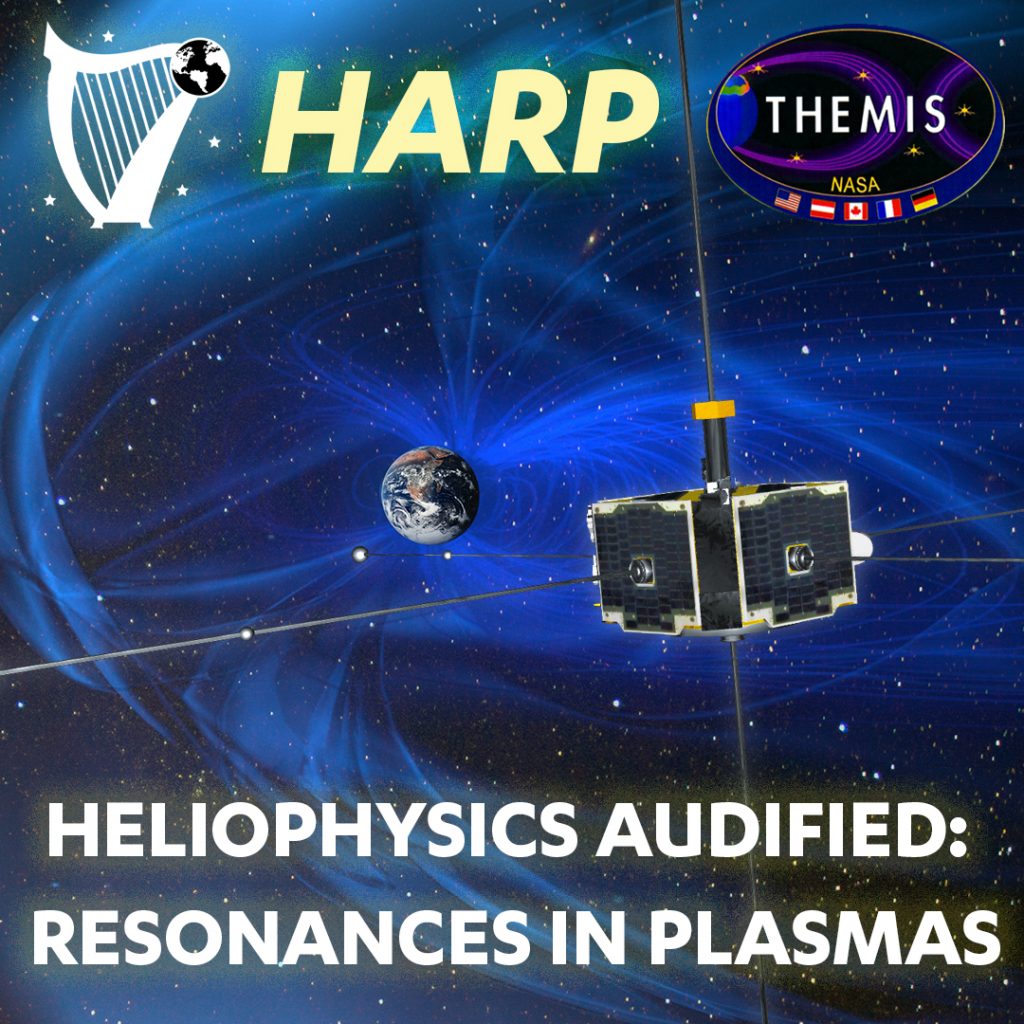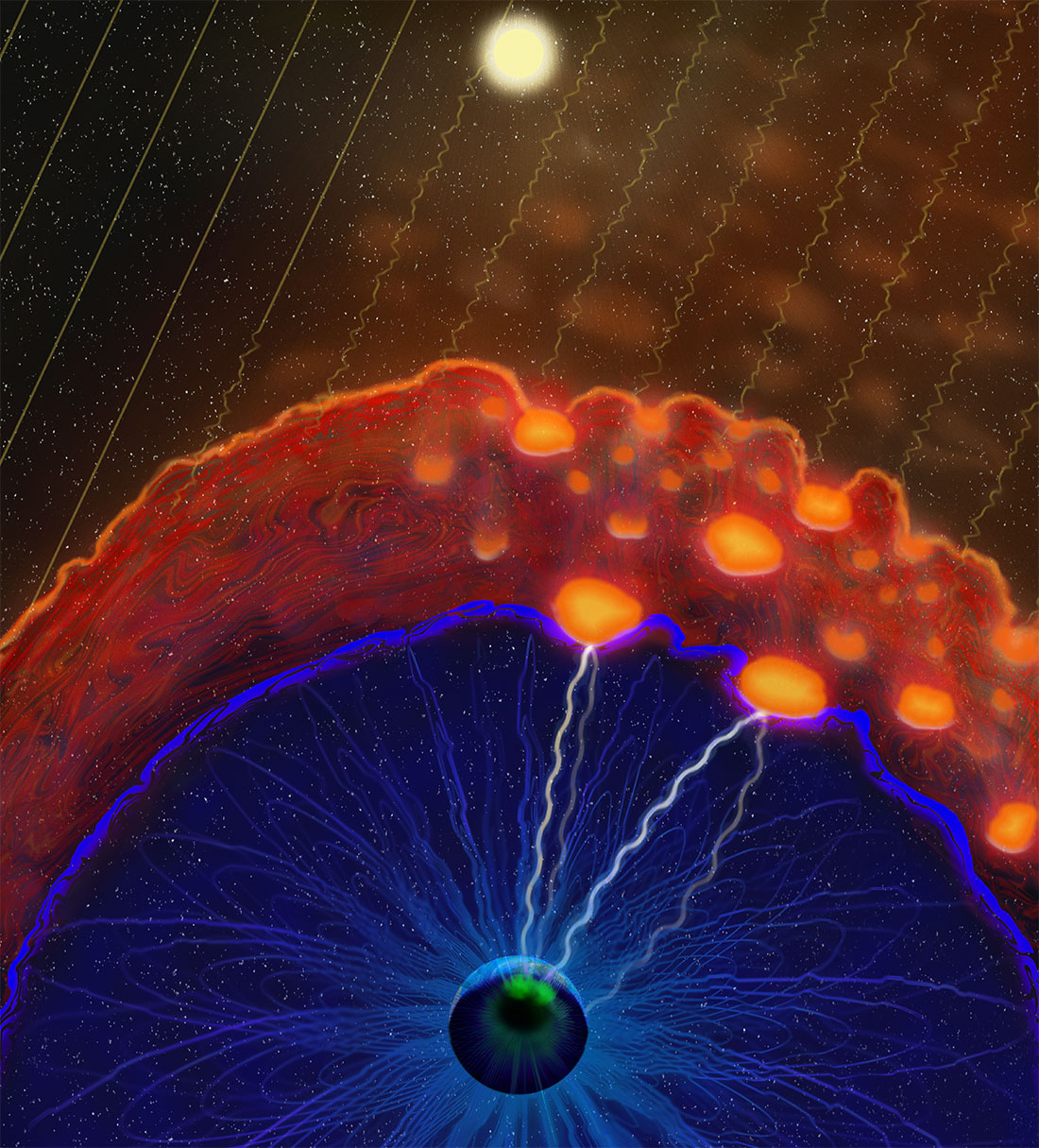
UCLA Scientists Inviting People to Explore Space With Their Ears
April 19, 2023
As civilization becomes more and more reliant on satellite technology, we have also become increasingly vulnerable to disruptions caused by solar activity. Known as space weather, eruptions on the sun can pose hazards to satellites, astronauts, and even communications and power infrastructure on the ground — a recent UCLA study even showed how space weather can influence animal behavior.

SGEG Feature through UCLA College
December 22, 2022
Check out this awesome news article, featuring and discussing one of our very own group members: Dominique Stumbaugh!

Space Raindrops Splashing on Earth’s Magnetic Umbrella
October 27, 2022
Though not as damaging as extreme space weather events, showers of plasma jets hit Earth’s magnetic shield every day—yet we’re only beginning to understand their effects. Every few minutes, Earth-sized “droplets” of plasma rain down from space toward Earth. Instead of crashing catastrophically to the ground, these droplets, called magnetosheath jets, hit and are deflected by the outer reaches of Earth’s magnetic field. Despite their frequent occurrence near Earth and likely ubiquity across the solar system, the study of magnetosheath jets is young, and there is much we do not know about their origins and behavior.
